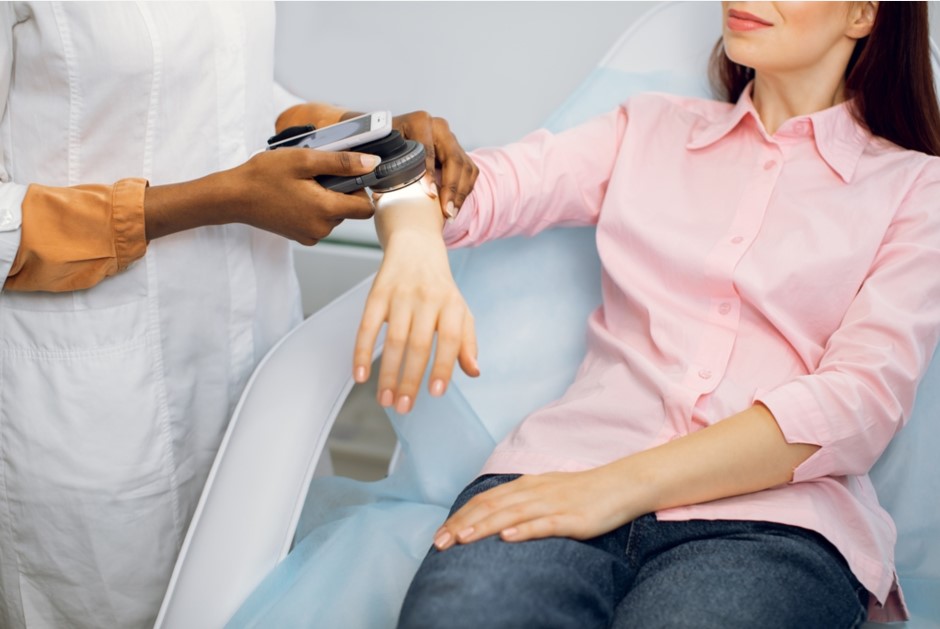
The majority of skin cancer, including Merkel cell carcinoma (MCC), come to a doctor's attention as a result of signs or symptoms a patient exhibit. Your doctor will inspect and perform tests on the suspicious spot to determine whether it is skin cancer or a minor skin condition you may have. Additional tests will be required if MCC is found, especially if there is a possibility that it has spread to other organs.

Medical history & physical test:
First, your doctor will inquire about your symptoms, including when you first noticed the change in your skin, whether it has grown or changed in appearance, and whether it has been painful, itchy, or bleeding.
The size, shape, colour, texture, and any signs of bleeding, seeping, or crusting will all be noted by your doctor when performing the physical examination. Any potential skin cancer-related lesions on the rest of your body will also be examined.
Dermatoscopy:
Some dermatologists employ dermatoscopy in addition to a regular physical examination to view spots on the skin more clearly. The physician uses a dermatoscope, a unique magnifying lens and light source held close to the skin. With this instrument, a thin covering of oil or alcohol may be used. A digital snapshot of the area might be taken by the doctor as well.
Skin Biopsy:
A tiny portion of the suspicious region, known as a sample, will be removed by the doctor and submitted to a lab if they suspect it to be MCC or another type of skin cancer. It is tested and examined under a microscope there. This is known as a skin biopsy.
Imaging tests:
In imaging tests, images of the inside of the body are produced using x-rays, magnetic fields, or radioactive materials. They can be used to determine whether MCC has spread to lymph nodes or other organs.
Computed tomography (CT) scan:
CT scans create detailed, cross-sectional images of your body using x-rays. CT scans, unlike traditional x-rays, can reveal details in soft tissues. This test can detect if lymph nodes are swollen or if other organs have abnormal spots caused by the spread of MCC.
Magnetic resonance imaging (MRI):
Instead of using x-rays, radio waves and powerful magnets are used in MRIs to produce precise images of the inside of your body. Finding cancer that has progressed to the brain and/or spinal cord using this test is very beneficial.Give GEIPE a try if you are looking for an effective, non-toxic and scientific Merkel Cell Carcinoma Treatment option.
⬤ ⬤ ⬤